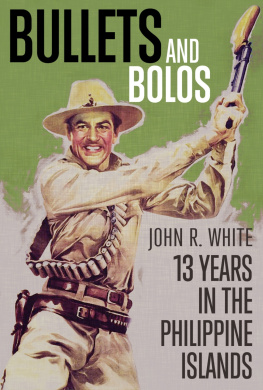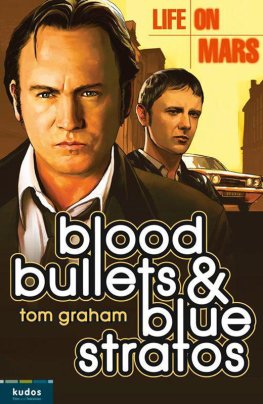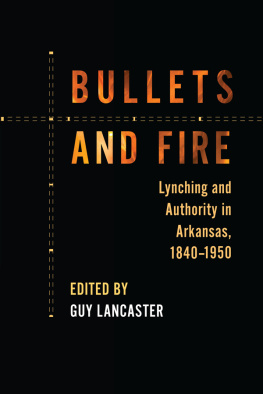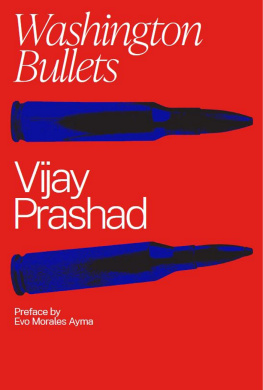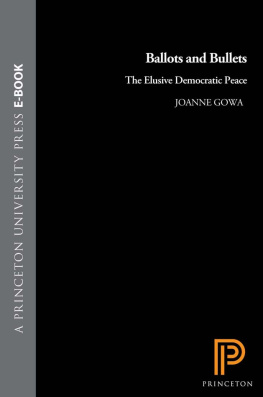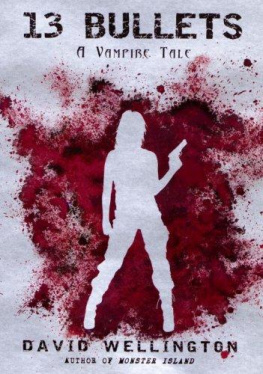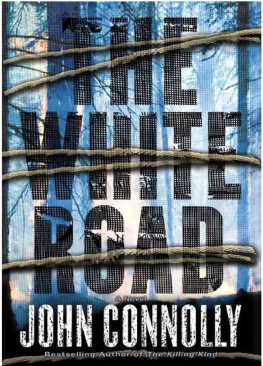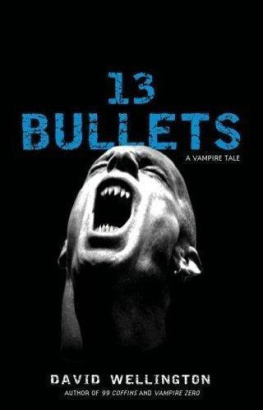John R. White - Bullets and Bolos
Here you can read online John R. White - Bullets and Bolos full text of the book (entire story) in english for free. Download pdf and epub, get meaning, cover and reviews about this ebook. year: 2020, publisher: Barajima Books, genre: Politics. Description of the work, (preface) as well as reviews are available. Best literature library LitArk.com created for fans of good reading and offers a wide selection of genres:
Romance novel
Science fiction
Adventure
Detective
Science
History
Home and family
Prose
Art
Politics
Computer
Non-fiction
Religion
Business
Children
Humor
Choose a favorite category and find really read worthwhile books. Enjoy immersion in the world of imagination, feel the emotions of the characters or learn something new for yourself, make an fascinating discovery.
- Book:Bullets and Bolos
- Author:
- Publisher:Barajima Books
- Genre:
- Year:2020
- Rating:3 / 5
- Favourites:Add to favourites
- Your mark:
- 60
- 1
- 2
- 3
- 4
- 5
Bullets and Bolos: summary, description and annotation
We offer to read an annotation, description, summary or preface (depends on what the author of the book "Bullets and Bolos" wrote himself). If you haven't found the necessary information about the book — write in the comments, we will try to find it.
Bullets and Bolos — read online for free the complete book (whole text) full work
Below is the text of the book, divided by pages. System saving the place of the last page read, allows you to conveniently read the book "Bullets and Bolos" online for free, without having to search again every time where you left off. Put a bookmark, and you can go to the page where you finished reading at any time.
Font size:
Interval:
Bookmark:


Barajima Books 2020, all rights reserved. No part of this publication may be reproduced, stored in a retrieval system or transmitted by any means, electrical, mechanical or otherwise without the written permission of the copyright holder.
Publishers Note
Although in most cases we have retained the Authors original spelling and grammar to authentically reproduce the work of the Author and the original intent of such material, some additional notes and clarifications have been added for the modern readers benefit.
We have also made every effort to include all maps and illustrations of the original edition the limitations of formatting do not allow of including larger maps, we will upload as many of these maps as possible.
BULLETS and BOLOS
Fifteen Years in the Philippine Islands
JOHN R. WHITE
Colonel, Philippine Constabulary, Retired
Bullets and Bolos was originally published in 1928 by The Century Company, New York.
To those who died along Americas
furthest frontiers in the Philippines
these reminiscences are affectionately
dedicated by one who lived
Contents
The Philippine Constabulary, of which this book is an epic, was born twenty-six years ago in a world that acknowledged an obligation that Kipling called the White Mans Burden. American altruism was the marvel of a hard-boiled world. We were too internationally ladylike to speak of anything so ordinary as Oriental trade and markets. We acknowledged no interest in the new insular possessions unless it were the desire to extend to them the tutelage of a gifted people who had brought the art of governing themselves to very high perfection. Some of the least competent statesmen our country had produced in a century and a quarter were horrified at the idea of governing anyone who did not wish to be governed. The first echoes of what was later called self-determination of subject peoples sounded an uncertainty and partisanship in our policy toward the Filipinos that has lasted and crippled its efficiency to this day. We have quite successfully demonstrated that our form of government is not adapted to governing colonies, or peoples living in territory not acceptable for future statehood.
Civil Government in the Islands must not be delayed though active insurrection still raged in many provinces in 1901. The Army, which had brought such peace as existed and made it possible for the new Government to function, was called upon to surrender the reins. It seemed a little inconsistent after elbowing the military-governor out of his chair to begin at once asking for troops to keep on subduing the Insurrection. Yet it was many years before any considerable disorder in the Philippines took other form than insurrection and the declaration of numerous little republics.
A new army was therefore created by the Philippine Commission as the new civil government was called. This native army was given civil powers, and, as its name of Constabulary implies, consisted of peace officers charged with enforcing order and suppressing brigandage and unlawful assemblies. It was organized and administered as native infantry, and continuously operated as such somewhere in those lovely islands of the Eastern Seas. Its enlisted strength was native. From its organization in 1902 until the World War, its senior chiefs were officers of the United States Army. The remainder of its commissioned strength was made up at first from the best of the American volunteers who had remained in the Islands after Civil Government was established, to whom were added occasional appointments from the line of the regular army, and in later years many graduates of American colleges sent out by the War Department. A few Filipino officers entered the lower commissioned grades and these gradually increased in numbers and rank. The Army chiefs disappeared from the Constabulary rolls with the War, and gradually elimination of the other American officers has taken place so there are now but few remaining. For fifteen years there was no department of the Insular Government more influential and efficient than the Constabulary. With the change of ideals and policies that came in with the Harrison administration of the Philippines, it was almost the only bureau that preserved the traditions of his predecessors and carried on with the impetus of earlier days.
There is no better monument to the ingratitude of our country than its treatment of the Americans it used in the Government of the Philippines. With the doctrine of the White Mans Burden, the memory of Cromer in Egypt and of Wood in Cuba, numbers of our best young men found employment in the Philippine Government and truly carried its burdens for fifteen years after Dewey took Manila. Beginning with the brutal ejection of Governor-General Forbes from office in 1913, members of this great Service, which included not only the splendid American officers of the Constabulary, but other hundreds of equal merit throughout the Insular Government, were thrown out in middle age, a dozen years out of touch with business at home, and physically weakened by long stay in the tropics. This was done by a very ingenious law which provided that every American official and employee of the Government of not less than ten years service, who applied for retirement within three months of its passage, might be retired by the governor-general at his discretion with one years pay. With absolutely no secure tenure of office against dismissal without notice or pay, there was almost unanimous application for this retirement. Some were retired at once but in the discretion of His Excellency others remained with their applications on file and liable to be acted upon at any time. It was an eviction by wholesale of as fine a body of public servants as ever gave their best years to a government. It fell with particular force on the Constabulary. Many of them found commissions in the American Expeditionary Forces and a number of them were killed in action or died of wounds. Almost invariably they made outstanding officers, for the peculiar character of their service in the Constabulary had accustomed them to take responsibility to a degree which does not come to junior officers in the regular army in time of peace. Some eighty of them still remain in our Army. It is a pleasure to record that belated recognition has come to this group through Congressional action in the last month of the session just ended, which allows them to count their Philippine Constabulary service in the computation of pay and of time for retirement.
Bullets and Bolos is the account of thirteen years in the Philippine Constabulary by one who was one of its most gallant and outstanding officers. Colonel John R. White passed through every grade from lieutenant to colonel, and saw service in every part of the Philippine Archipelago. It is twenty-five years this autumn since he reported to me at Zamboanga as adjutant of the new Constabulary which I was to create from the Moslem Moros. A true soldier of fortune, though in his maturity he lightly scorns the imputation, he had already served in the Greek Foreign Legion in the war with Turkey, had participated in the rush to the Klondike, had come to the Philippines as a soldier in our volunteer army, and at twenty-four was wearing the gold bars and scarlet shoulder-straps of a captain. Over six feet in height, slender and straight, very red-headed and very impulsive, he was attractive and dashing to a degree that only a Kipling could describe. His was the crowded hour of glorious life, for no one who wore the khaki and red saw more of it in those days when we were all strong in our faith in the value of the work to which we had set our hands. Desperately wounded in the affair at Bud Dajo in 1906, his health later gave way under hardship and exposure and his Constabulary career ended by his being sent to the Rocky Mountains for lung trouble. He returned to the colors in 1918, and in France served once more under his Chief of those old days, the story of which he has so well told in this book.
Next pageFont size:
Interval:
Bookmark:
Similar books «Bullets and Bolos»
Look at similar books to Bullets and Bolos. We have selected literature similar in name and meaning in the hope of providing readers with more options to find new, interesting, not yet read works.
Discussion, reviews of the book Bullets and Bolos and just readers' own opinions. Leave your comments, write what you think about the work, its meaning or the main characters. Specify what exactly you liked and what you didn't like, and why you think so.

